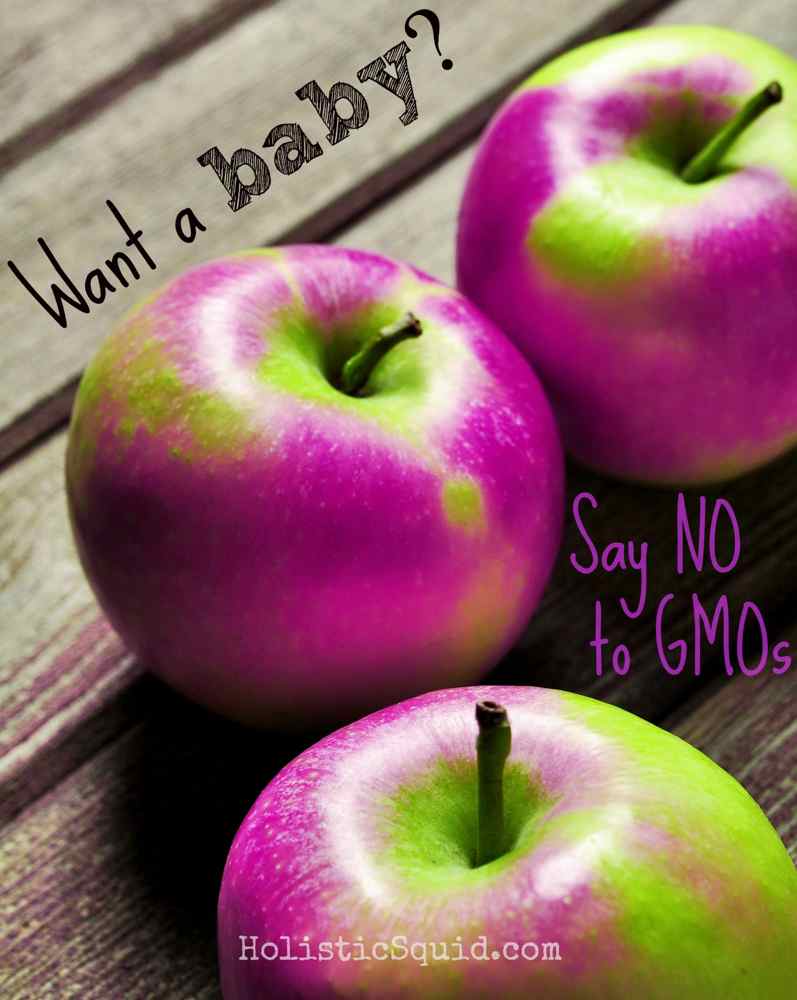
So you want to get pregnant and are looking for ways to increase fertility with food?
What's the secret?
A cleanse? More fat? Special teas and berries?
Perhaps. But…
The #1 way to increase fertility through diet is not what you're eating, it's what you're NOT eating
As a rule, I'd rather encourage people to eat the good stuff (here's a great list fertility super foods), and trust that the bad stuff will gradually fall away. But when it comes to this topic, you should just say no.
So, what's the big NO-NO?
GMO's.
Studies link GMO foods with infertility
There have been various studies that link GMOs and infertility, which are contested feverishly by GMO supporters.
A three generation study of hamsters in Russia demonstrated nearly complete infertility after three generations fed GM soy. Any babies that were born suffered from slow growth and high mortality rates.
Alexey Surov, the biologist in charge of these studies says, “We have no right to use GMOs until we understand the possible adverse effects, not only to ourselves but to future generations as well.”
In another 2005 study, rats fed GM soy died at a rate FIVE times higher than the rats fed GMO free soy. The babies in the GM group were also smaller and could not reproduce. The male rats' testicles turned from a normal pink color to a purplish-blue when fed GMOs, and the sperm of these rats was of poor quality.
An Austrian government study published in November 2008 showed that the more GM corn was fed to mice, the fewer the babies they had and the smaller the babies were.
Farmers in the US, and India have reported sterility and death of livestock after introducing GM feed. (source).
This is only a partial list of studies and reports. While no large-scale human clinical trials have been funded, doctors and other experts are recommending a GMO-free diet for various health conditions, including infertility. Dramatic health recoveries have been reported. (source)
Wait, what's a GMO?
For centuries, gardeners, farmers, and scientists have been cross-breeding plants and animals (within the same species) to create the most desired traits.
Genetically modified organisms were first introduced into our food supply in 1994, and are created by the introduction of foreign genetic proteins from other species to change the way the plant or animal's genes express.
In theory, such an amazing biotechnology could be used to make plants more nutritious or able to grow in harsh climates, thus solving the issues of world hunger. In reality this is not happening.
Monsanto and other mega-corporations are using GMOs to create pesticide-tolerant, patented seed crops that do not last for more than one season. This creates a dominance over small farmers who previously bought seeds only once and now must buy seeds every time they plant – as well as the pesticides and herbicides that these new varieties of crops require.
Beside the economical and ethical issues involved with GMO crops, it is very likely that the genetic alteration of food will have an impact on those animals and people that are consuming the food.
How's this for freaky…
Once eaten, GMOs may stay inside your body forever!
The only published human feeding study revealed what may be the most dangerous problem from GM foods. The gene inserted into GM soy transfers into the DNA of bacteria living inside our intestines and continues to function. This means that long after we stop eating GMOs, we may still have potentially harmful GM proteins produced continuously inside of us.
Put more plainly, eating a corn chip produced from [genetically modified] corn might transform our intestinal bacteria into living pesticide factories, possibly for the rest of our lives.
When evidence of gene transfer is reported at medical conferences around the US, doctors often respond by citing the huge increase of gastrointestinal problems among their patients over the last decade. GM foods might be colonizing the gut flora of North Americans. (source)
GMO foods are laden with chemicals
Among scientists, it is still a hot debate whether or not GMOs are specifically the cause of infertility and other health issues.
Beyond the possibility of GM itself being a problem, it cannot be denied that GM foods are also engineered to withstand high exposure to pesticides and herbicides (such as “Roundup Ready Corn“). Even if messing with genes does not cause infertility, it is certain that these poisons are wreaking havoc on our health whether consumed directly, in/on fruits and vegetables, or via the meat of animals who have eaten GMO feed.
Glyphosate, one of the active ingredients in Roundup and other herbicides, is a known endocrine disruptor, meaning it interferes with hormone balance in the body, able to introduce health issues with even a small amount of exposure. Aside from infertility, endocrine disruptors can affect mood and metabolism and have been linked to some cancers as well. (source)
It is advised not only to avoid pesticide laden foods, but also to filter your water, which may also be contaminated with glyphosate.
GMO foods offer inferior nutrition
Finally, if “franken foods” and poison sprays aren't enough, we need to talk about the whole point of food in the first place – nutrition.
It's important to note that nutritional quality is not a priority when it comes to GM produce – economic dominance, extended shelf life, herbicide resistance, and the ability to grow in crowded rows and in nutrient deficient soil are the current goals of genetic modifications.
When it comes to making babies, what we eat is of utmost importance. Whether you are just starting to think about having a baby or are having problems trying to conceive – it is essential that you eat the most nutritious food possible.
It's a no brainer: eliminate GMOs from your diet if you want to make a healthy baby.
Here's how to avoid GMOs
Eat Organic – The easiest way to avoid GMOs is to only eat 100% certified organic foods, since the USDA requires that organic food not be genetically modified.
Avoid the big GMO crops – If you cannot afford 100% organic, be sure to avoid non-organic foods made with these ingredients: corn, soy, canola, sugar (usually made from GM sugar beets).
Don't eat packaged foods – Even packaged foods labeled “organic” may not contain all organic, non-GMO ingredients. Just because you bought it in a pretty package at your favorite health food store does not mean you aren't buying toxic, GM ingredients.
Read your labels – In an ideal world you won't be eating processed foods, but if you do, be sure to read your labels to look out for the major GMO products above.
Know your farmer – Seriously people, the best way to know what's in your food is to know exactly where it came from. While this may seem like an inconvenience to your life, I guarantee that infertility or cancer are bigger inconveniences. So get out to your local farmer's market, get a weekly farm box, and go visit your farmer! Ask questions, have a look, and find out how your food is grown!
Still not convinced?
Russia and 6 European countries (including France and Germany) have all banned the import of GMO crops with “justifiable reasons to consider that the GMO in question poses a risk to human health or the environment.” (source)
Most countries (apart from the U.S. and Canada) require labeling of genetically modified foods (source).
Just this month, Kaiser Permanente – the largest managed healthcare organization in the United States – has recommended that customers “limit exposure to GMOs” stating, “Despite what the biotech industry might say, there is little research on the long-term effects of GMOs on human health.”
While I'm not usually apt to take advice from a health insurance company, for once the corporate bottom line does line up with consumers' best interests.
Skip GMOs, stay healthy, save everyone money – and increase fertility while you're at it!
Do you avoid GMOs? Share in the comments!
 How your lifestyle may be inhibiting your ability to conceive – and what to do about it
How your lifestyle may be inhibiting your ability to conceive – and what to do about it
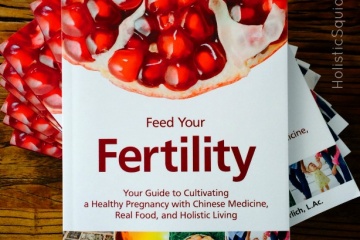
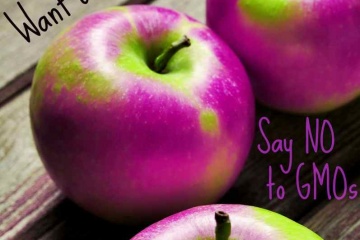


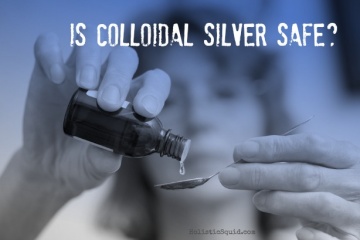
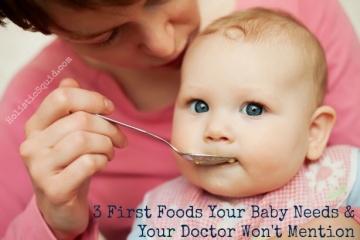


I wonder if any studies exist to show nutrient density differences between GMO and non-GMO.
I cut way down on GMO foods in 2004 and saw a sharp improvement in my health.
I cut out GMOs in my food by 2006 and have observed a gradual improvement in health since.
I’m a little confused about the packaged food issue. If something is labeled with the USDA organic seal, does that not mean that it is free of GMO’s, pesticides, hormones, etc?
Hi Ariel – Lots of prepared food labeled as organic will contain ingredients that are not organic. For example, a frozen pizza may have organic cheese, but not organic sauce or wheat. You just need to read carefully and not trust blindly that if you see the word ‘organic’ that’s all you’re buying.
No, it does not. Corn, soybeans, and several other crops when certified organic must be 90 something percent GMO free but not 100%. I am referring to a list of crops that are GMO. Don’t recall the link to this. Just do a search and you will find them.
USDA National Organic Program has a list of approved “organic” pesticides, herbicides that a farmer can use. For example, an organic farmer can use insecticidal soap. Some of these substances have shown to be just as toxic as what the conventional growers use. Other criteria include being a certain radius of miles away from a place to has various toxic pollutants, including polluted air. All of this brings about substantially lower concentrations of poisons in certified organic crops relative to their conventional counterparts, something that scientific studies indicate. But by no means 100% freedom from noxious chemicals, an impossibility at this point in time.
Organic certification standards allow “organic” wax coating on apples – one reason why I buy apples in the farmer’s market which don’t contain any wax and have been tree ripened, unlike virtually all the apples in the food supply. I think these standards are quite low. So if you want higher standards, you need to know your farmer to determine if they have gone beyond the standards and to what extent.
Several of the studies mentioned fed the animals soy. I feel like I’ve read that soy products aren’t the greatest for fertility (but can’t site anything). I’m not saying GMO isn’t an issue, but it would have been nice if the hamsters had been fed a control of GMO corn too, or the mice fed GMO corn had also received GMO soy, so there would be more knowledge about which thing affects what, and how. (I stay away from both.)
Hi Elise – I agree. These studies aren’t perfect, and it would be great if there were more extensive research on GMOs, but unfortunately there’s not a ton of money to fund a study that debunks the value of genetically modified foods – neither big arga nor big pharma will profit. Sad but true.
In the first study mentioned the scientists set up controls: some rats had no soy, some had non-GM soy, and some had GM soy. The GM group had the lowest birth rates and highest mortality rates.
Emily, this is one of the best posts on GMOs I have ever read. I always get so flustered when I talk about it that I want to title my posts Liars! Liars! LIARS!
Somehow coming off as hysterical doesn’t seem like the best approach if I want to be taken seriously, though. I think maybe I will just refer people to you from now on 🙂
Lol. Heather, I have never, ever read one of your posts and thought that you seem hysterical. But thank you for the compliment, nonetheless. 🙂
Another great post, Emily! Definitely sharing this.
Great writing! Great research! Fantastic post! the end;)
Thank you, DaNelle! 🙂
Does this include corn? Like corn corn? Not corn product, but corn food. Because I really love summers corn.
Hi Ann Marie – try seeking out organic corn from reputable sources.
Since I have cut GM’ed foods from my diet (September of last year), I have experienced many changes!
Unlike every single one of my coworkers, I did not need to take one sick day during the fall or winter seasons because I was never sick! That’s saying something since I am a serious cyclist up here in Washington where it rains like there’s about to be another biblical Great Flood. Rain or shine, I’m out there an average of at least 45 minutes a day, easily; still no sniffles.
I feel mentally sharper, like a fog has been lifted off my mind. I can multitask far easier and find that I can think about a multitude of things at once, constantly, and keep going. At the same time, I am able to focus more intently when I am required to do so.
I have developed a huge appreciation for where my food comes from and for those who grow it the way it was meant to be. Food and the act of eating not only holds value to me for the use of survival, it has now become political and my choices are results of newly-developed principles and awareness.
Random people I run into in my day-to-day encounters tell me that I look so healthy and they ask how I do it! Of course, I do not hesitate to pass on my “secrets.” That being said, relationships with friends, family, and coworkers have flourished greatly. I am not sure if this is linked to the absence of GMOs, but it started happening when I’d cut them.
These are only the few short-term benefits that come to mind for now, but I’m sure that as I age and maintain this better lifestyle, I will find that it will not only make my life longer and more enjoyable, but also cut costs for things such as medicines, hospital bills, and insurance (to name a few).
The knowledge of what is going on in the matters of food has been a gateway to attaining a more sustainable way of life. I’ve become an advocate for whole and organic foods which has inspired those around me to take steps to do the same.
Good for you, Akari! Good to hear success stories!
I come from a family with tons of food related health problems. My grandparents have had open heart surgeries, strokes, and diabetes, my Mom at age 46 has no gall bladder, chronic colds/flu, no uterus, breast lumps removed, rheumatoid arthritis, chronic migraines, and many more topped with a massive sugar addiction. My younger sister, 23, is headed in the same direction with obesity, PCOS, and kidney stones. Once we adopted an organic, local whole-foods based lifestyle, primarily paleo, and started avoiding chemicals in pharmacuticals, cleaning supplies, beauty products, and food additives. I stopped getting colds and allergies even, and I am by far the healthiest person I know in terms of immunity. When it came time to concieve my friends started sharing their stories of years of failed conceptions and numerous misscarriages. It is extremely sad to think that people I care about screwed up our bodies with chemicals so badly that women cant even carry out a very natural biological function and feel the need to throw more chemicals and carcinogens at the problem with fertility drugs and pharmaceuticals. Fortunately for our family, we got pregnant on the first try, and I dont give myself credit for having a “special” sort of body or fertility, I credit our lifestyle with preparing both my husbands and my body to do what nature designed them for. If anyone out there is thinking that food isnt really related to some health problem you are having please reconsider, it is all connected. Our bodies are like cars, machines designed to function beautifully if given the right fuel, but we have been putting rocket fuel in our cars, which causes parts to malfunction and burn out. We were in the middle of a post-Christmas Whole30 when our little one was conceived and in my opinion that is the perfect start to our childs life nutritionally. Sorry for rambling, I just wanted to share my story.
Hi Michelle – thanks so much for sharing your story!
Thanks for this!
The rat study was completely debunked and the sources in this article don’t pan out. I would simply suggest that we all dig deep on this issue as the story is not so simple as all GMOs are bad.
I agree with this post, and changing my diet has allowed me to improve my healthy in many ways.
However, I am gluten-, dairy-, soy-, corn- and refined sugar free. I consume 100% strictly organic fruits and vegeatbles, grass fed, hormone free meat, and I am still struggling with infertility. I had hoped that, with the hormones I am repairing, the vitamins etc. it would be as simple as “Want a baby? Cut GMO’s”. But for some its so much more than that.
I cut out most GMO foods starting in January of this year and my exercise-induced asthma has completely gone away. Initially, it was because of the infertility issue, which still has not resolved. I forgot my inhaler on hikes two time in a row and was shocked when it was not needed. The 3rd time I brought it on a particularly strenuous hike I had not been able to do without it the year before, but did not need it. Soon after I read that GMO’s can increase allergies and asthma. I told my husband this, but he didn’t think it was really. A few months later I mentioned to him that I was running on my lunch breaks. His jaw about fell to the floor. And, just this past month, I climbed Lassen Volcanic Peak-no inhaler, no wheezing, no gasping.